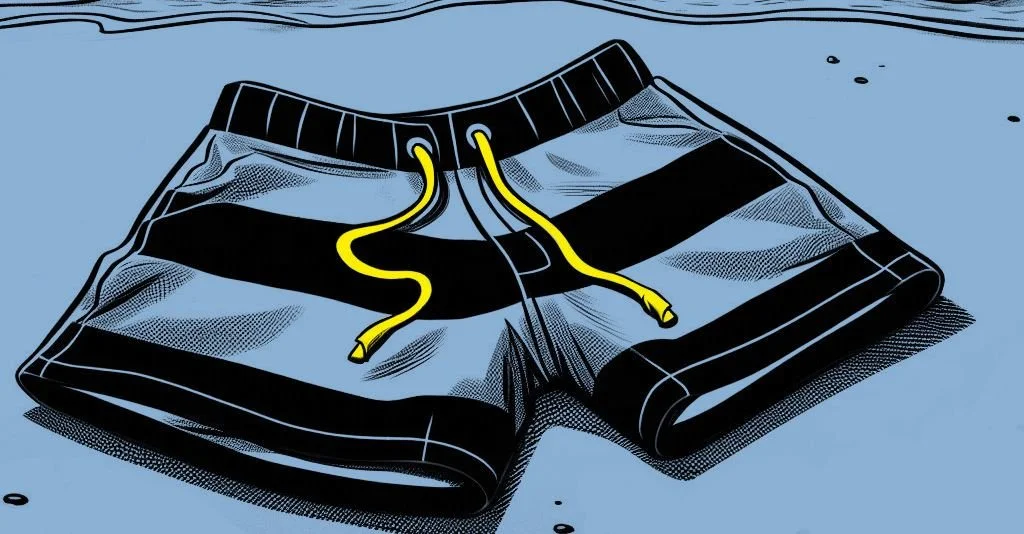Shorts Story
There's a kind of exec that likes to throw a fit every time share price dips. They'll kick and scream and look for someone to blame. It's never their fault. Often, the tantrum finds fault with "the shorts."
"The shorts" can be investors that are actually short a company's stock — betting the price will go down — and also as a catch-all for anyone who has any constructive criticism of the company. The shorts lurk in the shadows and could be the culprit whenever a company's shares drop.
The shorts like soft targets. They'll go after shares already beaten down, with weary investors. They'll look for marks where insiders are selling. They'll go at companies where there aren't too many obvious buyers. They'll take aim when companies go into their "quiet period" where they can't fight back. Then, they'll drop a report like shouting "fire" in a crowded theater, hoping investors head for the exits.
Feeling the heat? Wear shorts.
The shorts may just be looking for an easy buck. The other side of this is that the shorts provide a useful service to the market. They can cool off over-heated shares. Sometimes they uncover fraud. Sometimes they reveal management misdirection. Sometimes they just point out crappy businesses.
Anyway, Nigni Research published a short report on Marex on August 8th. Lamplighter's talked positively about Marex before. What type of report is it: helpful or hit piece?
Marex fits the "soft target" profile: shares down 28% from highs earlier this year. Insider selling — the main reason it went public was to give earlier investors an exit. Nigni dropped its report right before Marex announced earnings — when it couldn't say much in public.
"Look" Nigni cried, "complexity! Obscure legal structures! They could be covering up poor performance."
"Look! They're making up marks for how much their assets are worth. Who knows what they're really worth?"
"Look! These guys worked at Lehman Brothers. That turned out badly…"
Nigni pointed out some facts about Marex and framed them in a way that could be sinister. It did this while making a hand-wavey case that it's all bad for the company. Maybe. Nigni left out how bad this would be for the company, if any of it was actually bad at all. If it’s bad, what does that mean for how much the company’s worth?
Lamplighter's talked before about answering the question "so what?" Maybe the facts are sinister. They could also be just fine. A week later, Marex put up a strong earnings report — revenue up 18% from last year, profit up 16%. That’s not a verdict on Nigni’s case, but it does chip at its credibility.
Fits and starts
In the meantime, how did management respond? This is the more interesting test. A thin-skinned management team would play victim. They'd stop and whine about the shorts playing "unfair." They'd throw a fit like at the beginning of this piece.
Marex management? They acknowledged the allegations. They thanked investors for taking them seriously. They went through the main points one by one and provided context for why they're artifacts of how the business works rather than part of some evil plot.
The Nigni episode is exactly why execs roll their eyes at the shorts. It highlights all the tactics that drive them mad. But, since it happened, it also gave management the chance to take the high road. They did.
Management acting like grown-ups isn't a definitive reason to decide Marex — or any company — is a good investment or not. It is a signpost on the road, though. If management can be trusted to handle smaller crises effectively, they might be trustworthy to also handle larger ones that will inevitably come up further down that road.
Disclaimer: None of this is investment advice. It's meant to illustrate ways LCM thinks about investing. Things that LCM decides are good investments for LCM and its clients are based on many criteria, not all of which are covered here. Some or all of LCM's ideas may not be suitable for other investors. LCM does not recommend investing either long or short any position mentioned. LCM may own positions in some of the companies mentioned. Some of its ideas will lose money — investing entails risk. See full disclaimer here.

